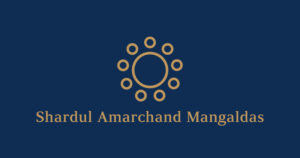Despite the significant economic uncertainties brought on by the covid-19 pandemic in 2020, private equity (PE) deal activity in India over the past year has been distinctly characterized by a sharp upturn. PE investors have focused heavily on acquiring control or significant positions and the industry has witnessed a growing number of proprietary auction processes, with multiple bidders involved. Notably, through the course of 2020, most funds shared a common focus on sectors like healthcare (especially, pharmaceuticals, with an emphasis on active pharmaceutical ingredients, biotech and life sciences), technology (especially, software-as-a-service, edtech, healthtech and fintech) and e-commerce, which proved to be especially resilient in the face of the pandemic.

Senior partner
Shardul Amarchand Mangaldas & Co
With successful vaccine deployment now very much underway, these resilient sectors, along with others such as FMCG, hospitality, energy, financial services and insurance are seeing a strong revival in investor interest, and will undoubtedly dominate fundraising in 2021. Optimistic valuations have historically characterized Indian deal-making, and realistically, this trend will continue, with new highs in valuations being likely for companies that have withstood the pandemic and survived.
Moving forward, there are three additional factors that will significantly push valuations upwards in 2021.The first is that, even with active deployment in 2020, PE players have considerable dry powder, ready for immediate deployment. Given the right investment opportunities, most PE funds will be amenable to tipping the scales towards an additional turn of EBITDA (earnings before interest, taxes, depreciation, and amortization) to win bids.
Secondly, auction processes, albeit more focussed ones, will remain the preferred way to raise capital and facilitate exits. For instance, at one point during the past few months, over 31 live auction processes were simultaneously ongoing for deals in the Indian pharmaceuticals sector – almost all of which received multiple serious bids from motivated buyers. Finally, a substantial churn across the senior leadership rungs of various prominent PE funds is currently at play in the Indian markets. The new incoming leadership, armed with access to substantial funds and redesigned investment mandates, is strategically positioned to compete aggressively for high-quality assets in the relatively shallow marketplace. Consequently, valuations should see dramatic escalations.
Going forward, as more and more companies in the Indian markets seek to restructure their capital structure and divest non-core assets, PE funds
will also have significant opportunities to acquire distressed assets, both, through their portfolio companies, and by collaborating with strategic partners (including existing management teams). In terms of exits, with a record number of successful IPOs in December 2020, IPOs will become the desired mode of exits for PE funds in 2021, with auction processes continuing to be the vanilla alternative. We can also expect to see some investors trying to extract the highest possible values from their investments, by launching dual-track auction processes.

Associate
Shardul Amarchand Mangaldas & Co
From a legal perspective, to bridge inevitable valuation gaps, deals going forward will rely on permissible structured components, such as downside protection through convertible instruments, earn-outs, deferred compensation and investors’ rights to acquire additional stakes at pre-agreed valuation methodologies. Potential investors will also focus heavily on comprehensive due diligence, with the increased focus on anti-bribery, anti-corruption and anti-money laundering laws, and ESG (environmental, social and governance) compliances. Further, even in competitive bid scenarios, contingency clauses (such as material adverse event/material adverse change clauses) and conditions precedent provisions will be heavily negotiated, as sellers increasingly demand deal certainty.
Additionally, the growing trend of reliance on warranty and indemnity insurance to gain competitive advantages in highly-contested auction processes will also continue. Furthermore, clarity from the government, on the ambit and applicability of the Press Note 3 regulations, will considerably help in easing the market-wide uncertainty seen in 2020, and provide much-needed regulatory certainty to PE investors, going forward.
Given that PE investor interest has stayed consistently strong through the worst of the pandemic in 2020, there is every reason to be confident that, with the end of the pandemic in sight, PE deal activity in India will be on an unprecedented upward trajectory in 2021.
Iqbal Khan is a senior partner and Amrita Rana is an associate at Shardul Amarchand Mangaldas & Co

Shardul Amarchand Mangaldas & Co
Nariman Point
Mumbai – 400 021
Executive Chairman: Shardul Shroff
Managing Partner Mumbai: Akshay Chudasama
Contact details
Tel: +91 22 4933 5555
Email: Connect@AMSShardul.com
New Delhi | Mumbai | Gurugram | Chennai | Bengaluru | Ahmedabad | Kolkata



























